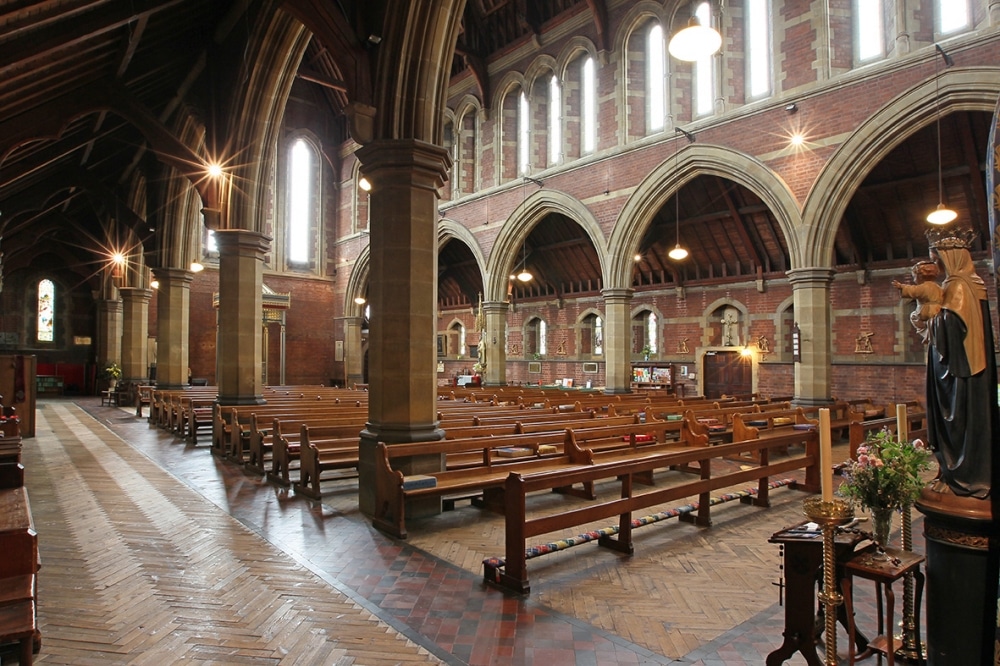Please can you tell us what the Heritage Open Days are all about?
Heritage Open Days are England’s largest festival of history and culture, bringing together a mixture of heritage and community by promoting free events, talks, walks and tours. Locally it is run by volunteers who research and promote all the events, sharing the fabulous resources and venues we have in our community.
How long has the event been running?
Nationally this year is the 25th anniversary so we are offering in total 52 events, one for each week of the year.
How and when did it come to Tunbridge Wells?
Heritage Open Days were introduced to Tunbridge Wells in the mid-90s with Blackhurst being the first building opening under the scheme. The Royal Tunbridge Wells Civic Society took an active interest in supporting the opening of heritage properties and the late Roger Farthing, Dr Philip Whitbourn and John Cunningham have also been key figures in ensuring a wide range of activities and publications are associated with this annual event.
What kinds of unique and fascinating historical finds can visitors expect to discover?
Our churches have a wealth of stained glass windows. Tudeley for example has the wonderful memorial windows designed by the great Russian artist Marc Chagall – the blues are vibrant even on the dullest of days. In Church Road in 1862, Alfred Romary set up his biscuit making business where Queen Victoria was a patron. Visitors can find out more about the local family firm by attending the Tunbridge Wells Borough Council Cultural Team’s biscuit decorating and tin designing event.
Please can you tell us about places in our local area that will be opening their doors?
The Bridge Club will be open for a talk by historian Dr Helen Doe, about local hero and Rusthall resident Wing Commander Bob Doe. Hawkenbury Allotments are offering guided walks around the site to provide inspiration in this time of climate change about how local people can use the land to grow their own produce.
The Heritage Open Days experience is:
Exploration, Protection, Celebration
Tunbridge Wells Masonic Hall also opens its doors, giving access to the Temple, which is normally closed to non-members. Freemasons will be on hand to explain and answer any questions on Freemasonry and its 300-year-old history.
Is there anything new to see for 2019?
Oh yes, there is always something new! This year we are delighted to welcome the Tunbridge Wells Friends (Quaker) Meeting House, a Victorian purpose-built building, opened in 1894. Also Rose Hill School is joining Heritage Open days for the first time, and visitors will be able to see exhibits from the school archives including a history from former sites of the school, its magazines which date back to 1929, old photos as well as biographies of famous past students.
How does the event work? Do people visit independently or are there guided tours?
There are both, some places you can wander at leisure, others you can join walks – some of which are bookable. The best way to find out is to pick up a printed booklet at Gateway, the area’s libraries, Trinity Arts and some railway stations. All of the events are being listed on our Facebook and Twitter pages, as well as on our website, tunbridgewellsheritageopendays.org
How far in the borough does the local Heritage Open Days event stretch out to?
It is quite a wide area, which is great as we have so much to offer. I could list them all but just to give you a taster, it stretches from Rusthall, Speldhurst and Tunbridge Wells out to Paddock Wood and the surrounding areas including Capel and Horsmonden.
What do you think people will enjoy most about participating in this event?
Its sheer variety! We have something for everyone from windmills at Cranbrook, dressing up for children at Trinity Arts, reminiscing about school days at St Barnabas and Rose Hill. Heritage is not just buildings, the countryside is also part of our local heritage; we have a guided walk on Rusthall Common, the High Rocks and the High Weald Walking Festival. Visitors can also dig up heritage on one of Southborough’s archaeology sites. Plus for those who prefer more industrial heritage we have the Spa Valley Railway and Network Rail’s Training Centre in Paddock Wood.
Are there any particular properties you would like to see participate that haven’t done so already?
Tunbridge Wells is famous for its Decimus Burton connection and there are many properties in private hands in the local area. It would be wonderful if some of the present owners would consider opening their doors so people can admire the work of this influential architect who has contributed so much to our local landscape and town planning. Also we would love experiences rather than just places, seeing more food and drink ideas related to heritage.
How do you see the festival evolving in the future?
It is not just properties we need to think about in terms of heritage, it is also future heritage. This year we celebrate the festival’s 25th anniversary with a new arts commission, focusing on those who have bought positive change and the power of gentle protest. Called ‘Dare to Dream’, the project will explore the power of positive visualisation in effecting change and finding solutions to the problems that surround us.
Pictures by David Bartholomew








